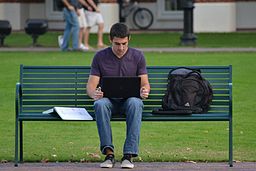How and When do we Learn?
 Learning is inevitable. We all do it. Generally it means to learn knowledge or a new skill…. but is that all?
Learning is inevitable. We all do it. Generally it means to learn knowledge or a new skill…. but is that all?
We learn from birth and maybe before. We learn to talk, walk and play as babies and young children, later our school syllabus as young people, and beyond that in general life; Jobs, hobbies, skills, languages, professional training. There is always room for improvement, which is a better thing than it sounds.
Scientists have been fascinated by learning and how the brain does it for a long time. They say we’re better people for it ( you could look up Maslow’s triangle and Carl Rogers’ ‘fully functioning person’ for details ). You can also, of course, gain a true sense of achievement. Cognitive neuroscience is the branch of science that really looks at the brain, with the UCL one particularly excellent source of research in the field.
But how do we learn? And when? You can usually manage your learning yourself to some extent; it’s probably more effective if you do. At the same time, ask yourself, when do I work best? Is it in the morning or late at night? When the mood takes you? None of these are right or wrong. But some of them might work best for you and that’s what counts. What about methods, too; are you better at reading, listening, doing, copying? All are recognised ‘Styles of Learning’ ( maybe have a look at Kolb?). There’s even a learning exercise called “sitting next to Nellie”, because Nellie knows what she’s doing and if you watch her so will you ( An old factory idea, no doubt ).
In truth there are no definitive answers to these questions. And despite all the progress in the neurosciences, we will always be left with a need for greater knowledge. Perhaps the stricter teacher or more traditional syllabus will prove in our best interests in the long run of our lives. Or, as may well be the case if you are reading this, if you are happy to manage yourself and want some freedom in your learning, home schooling may be the best option for you. Ultimately, it could simply be a case of , how do you feel about it all?
